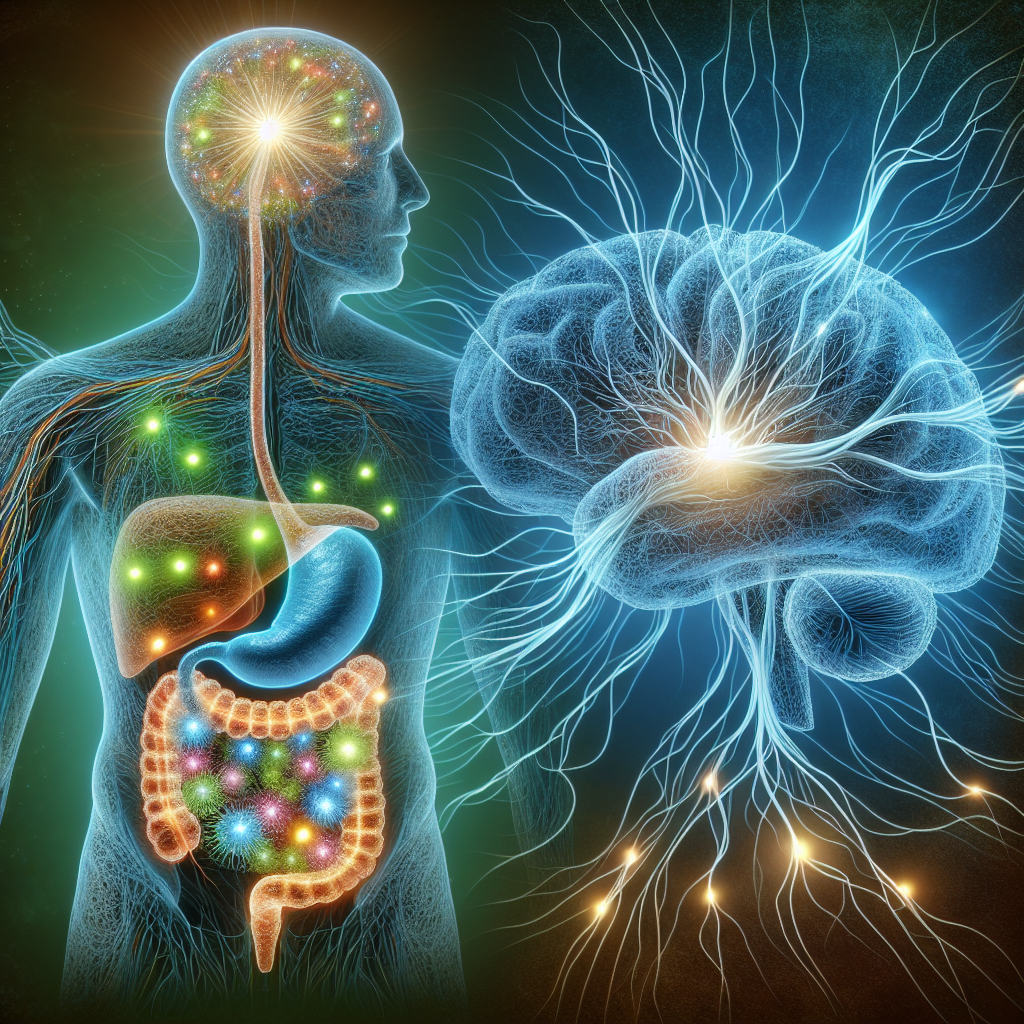Introduction to the Gut-Brain Axis
The gut-brain axis represents one of the most fascinating areas in neuroscience today, offering new insights into how our gut health directly influences our brain function. This connection involves a complex network that links the emotional and cognitive centers of the brain with peripheral intestinal functions.
Understanding the Biological Pathways
Recent studies have elucidated the pathways through which the gut and brain communicate, involving the central nervous system, the enteric nervous system, the gut microbiota, and various neuroimmune factors. This bi-directional communication pathway uses neural, hormonal, and immunological signals.
The Role of Microbiota
One of the most significant discoveries in this field is the role of gut microbiota in mental health. Research has shown that the balance of bacteria in the gut can affect everything from stress responses to mood regulation. For instance, certain probiotics known as ‘psychobiotics’ have been shown to potentially improve mental health outcomes by influencing the production of mood-regulating neurotransmitters like serotonin.
Impact on Health and Disease
The gut-brain axis has implications for numerous health conditions, including psychiatric and neurological disorders, such as anxiety, depression, and autism spectrum disorder. Additionally, gastrointestinal disorders like irritable bowel syndrome (IBS) and inflammatory bowel disease (IBD) are also thought to be linked to brain function through this axis.
Neurological Disorders
Studies have found that alterations in the gut microbiota can influence the severity and development of conditions like Parkinson’s disease and Alzheimer’s disease. The gut microbes may produce molecules that can trigger inflammatory responses that affect the brain.
Advancements in Research and Therapy
The ongoing research into the gut-brain axis is leading to innovative treatments that target the gastrointestinal tract to improve brain health. These include dietary interventions, probiotics, and prebiotics that aim to balance gut microbiota.
Diet and Mental Health
Evidence suggests that diets rich in fruits, vegetables, unprocessed grains, and fish support beneficial bacteria in the gut, which in turn, may enhance cognitive function and reduce the risk of brain disorders.
Challenges and Future Directions
Despite these advancements, there are challenges in fully understanding the mechanisms of the gut-brain axis. The complexity of the microbiota and its interactions with the host mean that personalized treatment approaches are needed. Future research is likely to focus on identifying specific microbial strains that play pivotal roles in health and disease and understanding how dietary components affect these interactions.
Conclusion
The exploration of the gut-brain axis is a prime example of how interdisciplinary research can revolutionize our understanding of health and disease. As we learn more, the potential to develop novel therapeutic strategies that harness this knowledge becomes increasingly feasible, offering hope for treatments that are as effective as they are innovative.


